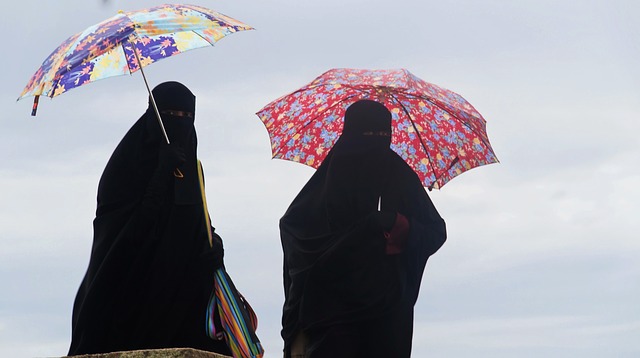
During a lecture about security in South Asia, my professor discussed a Nickelodeon superhero program produced in Pakistan called “Burka Avenger.” A teacher at an all-girls school by day, Burka Avenger conceals herself in her burqa when the school is in danger, fighting crime and corruption with books and pens as weapons to keep her girls safe and in school.
Burka Avenger has a message of empowerment to young women: They can choose to dress as they like, they should fight for their right to be in school and religiosity should be a force for peace and progress, not destruction and radicalism.
When I read of some coastal French cities’ recent bans on “burkinis,” I thought that French Muslim women could really use a Burka Avenger to save the day. Though derived from the name, this swimwear is not like a burqa, which covers women head to toe, including their eyes. On the contrary, burkinis just cover the body and hair, like a wetsuit with a swim cap. The problem is, wetsuits and swim caps are still perfectly legal beach attire.
Bans on religious exercise on the basis of their religious significance alone are dangerous infringements on human rights. Arguments against burqas can be made due to the necessity of people being identifiable in public for security. Arguments for stronger background checks for migrants from areas with prevalent radicalization can also be rationalized.
Even these proposals can sometimes be problematic, but at least have some justification outside of religion. There is no such justification for banning burkinis or banning all Muslims from entering the United States. It is pure and simple religious discrimination when a French, Christian man can wear a wetsuit while a Muslim woman cannot wear a burkini.
Maybe it seems unfair to scrutinize France’s dress codes when, at home, Donald Trump has proposed the much more egregious Muslim ban. At least such a ban in the United States is a widely decried proposal, not an implemented policy.
Luckily, France’s highest administrative court has since overturned the ban. But religious discrimination is a slippery slope down which these French cities have already gone too far.
Though lots of French and American Muslim women could use a Burka Avenger right now, the problem is, there is no real Burka Avenger. And there are increasingly few public figures and citizens willing to do her work of empowering women activists, ensuring religious dress is a personal choice every woman can make herself and defending religious freedom.
Annie Cappetta is a junior majoring in ecosystem science and policy and political science.
Featured image courtesy Pixabay user jusch






